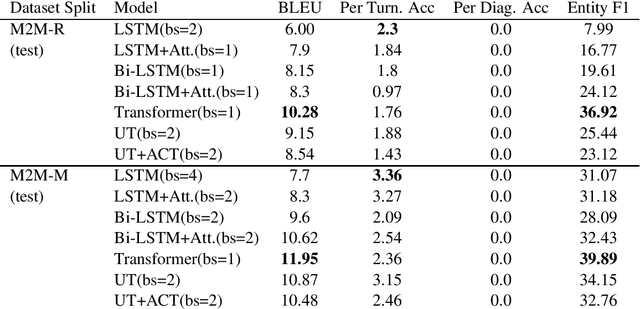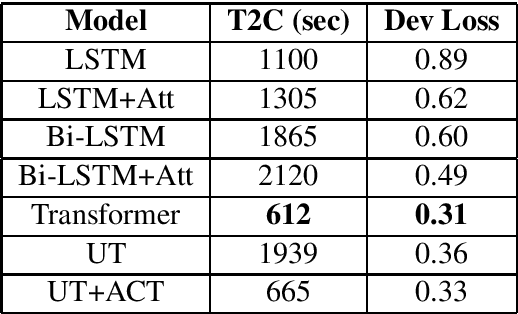Self-Attentional Models Application in Task-Oriented Dialogue Generation Systems
Paper and Code
Sep 11, 2019



Self-attentional models are a new paradigm for sequence modelling tasks which differ from common sequence modelling methods, such as recurrence-based and convolution-based sequence learning, in the way that their architecture is only based on the attention mechanism. Self-attentional models have been used in the creation of the state-of-the-art models in many NLP tasks such as neural machine translation, but their usage has not been explored for the task of training end-to-end task-oriented dialogue generation systems yet. In this study, we apply these models on the three different datasets for training task-oriented chatbots. Our finding shows that self-attentional models can be exploited to create end-to-end task-oriented chatbots which not only achieve higher evaluation scores compared to recurrence-based models, but also do so more efficiently.
 Add to Chrome
Add to Chrome Add to Firefox
Add to Firefox Add to Edge
Add to Edge